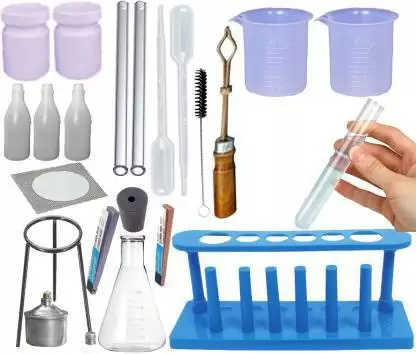Since the global COVID-19 pandemic, vaccine discussions and arguments have become highly prevalent. However, vaccines as a medical tool have been around for years since the 1700s and are an essential part of public health today. Vaccines protect individuals from disease and can help populations eradicate certain diseases altogether. Vaccines are necessary for healthcare systems globally and will continue to be an essential tool for the healthcare industry. Understanding how vaccines are created can help you make informed decisions about your healthcare and actions during a pandemic. Here’s a look at how vaccines are developed, how they work, and why you should stay up to date on your vaccinations.
Why Vaccines are Essential for Public Health
While there are many ways to prevent infectious diseases, vaccines are the only way to avoid some diseases. In addition to being safe and effective, vaccines have saved millions of lives. Vaccines prevent disease outbreaks by keeping individuals who haven’t yet been infected from acquiring the disease. This prevents the further spread of infection within a population that would occur if everyone in it became infected with the pathogen. The more vaccinated people within a population, the less likely that the virus will continue to spread throughout that area.
Conjugate Vaccines
The body needs a way to recognize and fight off an invader. Antigens are proteins that help the immune system identify something foreign, like a virus or bacteria. Vaccines introduce antigens into your body to stimulate your immune system and teach it how to respond when those antigens appear naturally—that way, your body will be ready if you ever encounter that virus or bacteria in real life. A conjugate vaccine attaches an antigen (usually from a bacteria or virus) to another protein so it can get past the liver and into the bloodstream without being destroyed by digestion enzymes there.
The most common type of conjugate vaccine is Haemophilus influenzae type b (Hib), which causes meningitis among children under five years old. Hib has been virtually eliminated in North America thanks to vaccination campaigns against it beginning in 1988; however, there are still cases reported every year because people haven’t gotten vaccinated yet or didn’t get enough doses during infancy/childhood. Hence, their immunity isn’t strong enough.
Attenuated and Inactive Vaccines
Inactivated vaccines are typically made from the killed version of the disease-causing organism. Attenuated vaccines are made using a weakened version of the antigen. Researchers make these vaccines by killing the antigen with light and temperature or weakening it by passing it through a series of animal cells until it is altered. The antigen in either state will no longer be able to replicate within a human body and cannot infect the host it is given to. However, these weakened antigens will still be recognized by the host’s immune system and will still trigger an immune response to the vaccine. These vaccines are highly effective against the diseases they are built to fight against.
Toxoid Vaccines
A toxoid vaccine contains an altered toxin, so it doesn’t get you sick. Not all diseases are caused by an antigen specifically, but rather by a toxin released by bacteria. Toxoids are created by altering the toxins produced by bacteria and viruses, which cause disease in humans. The alteration process is called “inactivation,” which means that the toxin has been made inactive or unable to cause illness and replicate within a human host.
mRNA vaccines
mRNA vaccines are a new type of vaccine that is created from messenger RNA (mRNA). These vaccines are made from a virus or bacteria that has been genetically modified, so it doesn’t cause disease. mRNA vaccines are injected into the body to stimulate the immune system. mRNA is a genetic material in your body’s cells, carrying instructions for making proteins. By injecting mRNA coded with antigen proteins, you can trick your immune system into thinking that it’s already fighting off an invading virus or bacteria, thereby strengthening its response and protecting you when you are exposed to the virus.
mRNA vaccines require biopharma experts to search through millions of strands of DNA and utilize top-of-the-line lab equipment to develop effective doses for human immune systems to learn these antigen proteins and fortify their hosts against the virus. Healthcare experts worked tirelessly alongside medical manufacturers like Avantor to develop effective mRNA vaccines against COVID. Manufacturers like Avantor continue to help “streamline the laboratory management process” so these vaccines can be produced quickly and efficiently.
Vaccines are effective, safe, and lifesaving. They have been an essential tool in preventing disease for hundreds of years. But the journey of vaccine development is not over yet! There is always room for improvement and new vaccines on the horizon. These healthcare tools are essential for surviving pandemics and new diseases that may plague our populations.




